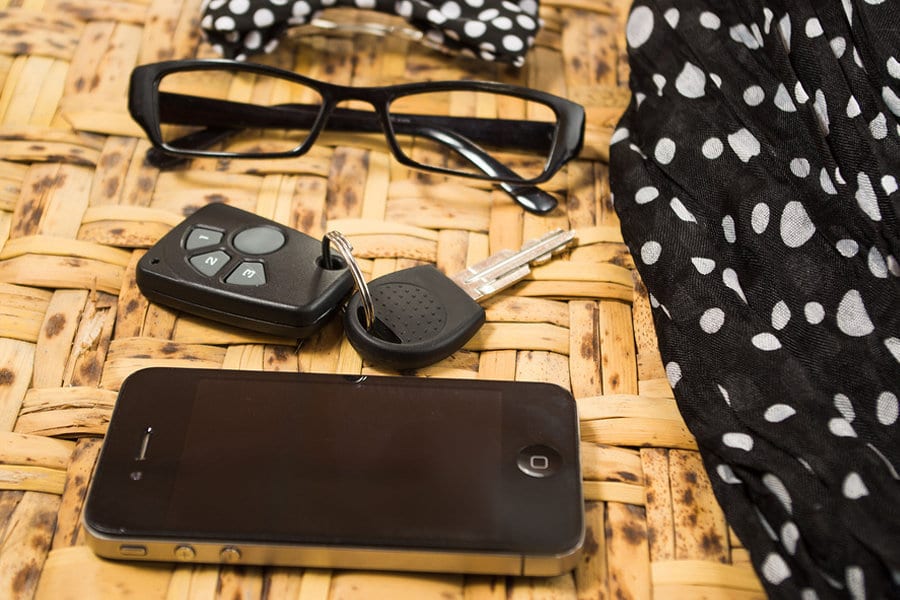Personal Belongings Estate Planning
Look around your house at all the stuff—chairs, tables, knickknacks, art work, photos, linens, items that have been in the family forever, jewelry, tools, antiques, clothing, etc., etc., etc. (Stuff means literally your stuff). If you pass away, something has to be done with all of that stuff. Stuff has a funny way of putting otherwise loving people at odds with one another. Horror stories abound about what happens to stuff when someone dies. Put your personal affairs in-order and avoid a contest between your loved ones after you die.
I have had clients share variations on the following stories:
A client was notified of his parent’s death out of state. By the time he was able to arrive at the parent’s home, several items had been removed from the home by one of his siblings.
A client picked items that she wanted from her deceased parent’s stuff and asked a sibling to pack and send the items to her home. When the package arrived, several of the items chosen had not been included. When questioned, the sender said those items were no longer around.
A client’s mother had told her that she would be getting the mother’s engagement ring while her sister would be getting her mother’s wedding band. The client’s mother apparently told the sister that she would be getting both the engagement ring and the wedding band. The client’s mother also told her oldest granddaughter that she would be getting this same engagement ring. Needless to say, this caused great confusion when the mother died and all 3 women staked a claim to these rings.
More family battles start over stuff than anything else. Think about Robin Williams’ family. When he died, the family battles began over stuff, not over money. The family fought over his celebrity paraphernalia. Sentimental items often do not become sentimental items until the owner dies. The heightened emotion of grief tends to heighten attachments to items.
How can you help your family avoid these situations if you pass away? So glad you asked. There are many things you can do to make it easier for everyone to handle your stuff.
1. You can make a list that says who gets what item. Arizona law (Arizona Revised Statute Section 14-2513) says that the list has to be in the owner’s handwriting or signed by the owner. I advise my clients to also date the list. The list can be generated on the computer, but must be signed and dated.
The date is an important feature for the following reason. You are motivated to make a list of your stuff in July 2016. You put the list with the rest of your estate planning documents. In January 2017, you make a new list and you change who is getting what items. Then you kick the bucket. The most recent list should dictate what happens with a particular item. This hopefully helps to avoid arguments between named people for the same item.
It is very important to describe each item sufficiently. Simply saying “my gun” or “my gold earrings” will not do the trick. Photos can be a tremendous help.
This list can be referenced in your Last Will or Revocable Living Trust. Your estate planning documents can literally say you may be making a list of particular items for particular people. This puts everyone on notice.
The stuff on the list can have great monetary value or not.
2. You can list particularly important personal belongings in your Last Will or Revocable Living Trust. You can say that such and such item should be distributed to a particular person. I recommend this for particularly important belongings with particularly high monetary value.
3. You can set out in your Last Will or Revocable Living Trust exactly how you want personal belongings handled. You can say who gets the items in general. This means that the items will be divided between a group of people, for instance. You can also set out an order for picking items—like oldest child to youngest.
4. I know folks who have put stickers on the backs of items in their homes, naming the recipient of each item. This is not technically legally binding; but I will tell you, it does seem to work more often than not.
5. I have other folks who have picked numbers out of a hat and then starting with the person with the number 1, each person, chronologically, picks an item. Once all of the items have been chosen, trading can begin between different individuals.
The whole point of estate planning documents is to avoid confusion, get your wishes across to everyone and hopefully, make for a smooth transition. Don’t let personal stuff be the trigger for discontent.
Get in contact with me today to make sure your estate planning affairs are in order.
Where There’s A Will, There’s A Way

